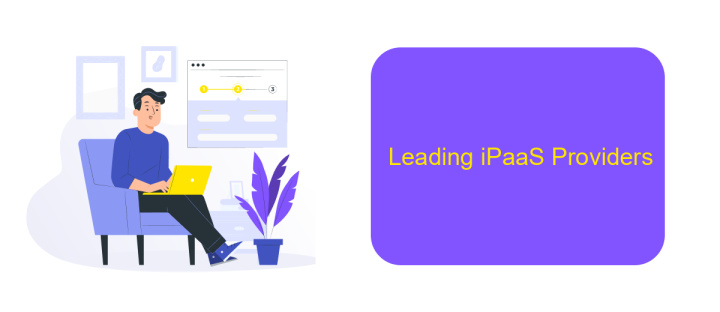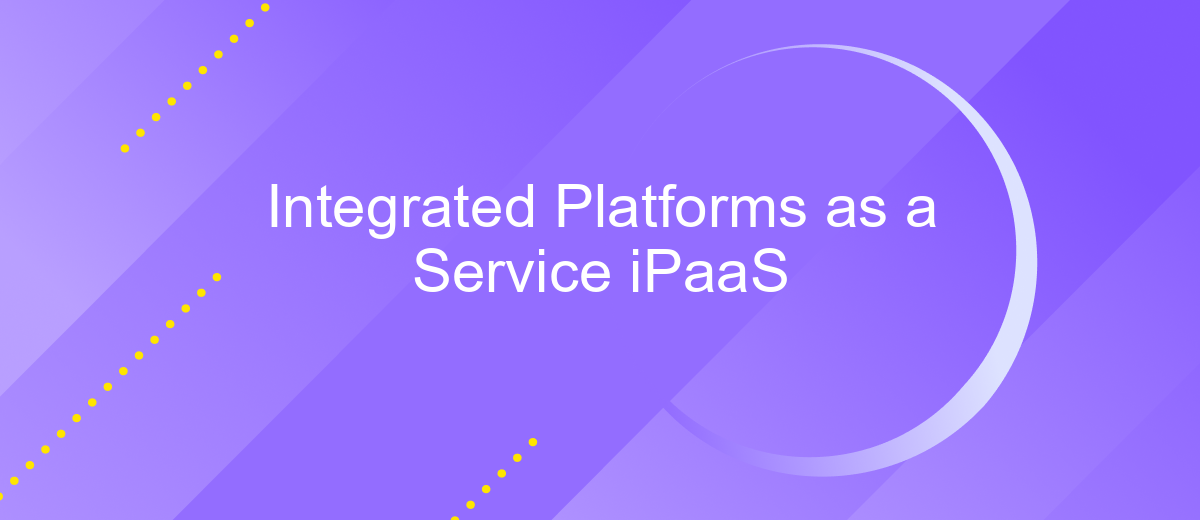Integrated Platforms as a Service iPaaS
Integrated Platforms as a Service (iPaaS) have revolutionized the way businesses manage and integrate their various applications and data sources. By providing a unified platform for seamless connectivity, iPaaS enables organizations to streamline workflows, enhance data accuracy, and improve operational efficiency. This article explores the key benefits, features, and use cases of iPaaS, highlighting its critical role in modern enterprise IT strategies.
Introduction
In today's rapidly evolving digital landscape, businesses are increasingly turning to Integrated Platforms as a Service (iPaaS) to streamline their operations and enhance connectivity. iPaaS provides a comprehensive solution for integrating disparate applications and data sources, enabling seamless communication and data flow across various platforms.
- Efficient integration of cloud and on-premises applications
- Real-time data synchronization and management
- Scalability to accommodate business growth
- Enhanced security and compliance features
One notable example of an iPaaS solution is ApiX-Drive, which offers a user-friendly interface for setting up integrations without the need for extensive coding knowledge. By leveraging such services, businesses can automate workflows, reduce manual errors, and ensure that critical data is always up-to-date. As a result, iPaaS not only improves operational efficiency but also empowers organizations to respond swiftly to changing market demands.
Key Features and Benefits

Integrated Platforms as a Service (iPaaS) offer a comprehensive suite of tools designed to streamline and automate the integration of various applications and data sources. One of the key features of iPaaS is its ability to provide a unified platform for seamless data synchronization and workflow automation. This not only reduces the complexity associated with traditional integration methods but also enhances operational efficiency by enabling real-time data exchange across multiple systems.
Additionally, iPaaS solutions often come with pre-built connectors and templates, making it easier for businesses to set up integrations without extensive coding knowledge. For instance, services like ApiX-Drive offer user-friendly interfaces and a wide range of connectors, allowing businesses to quickly integrate their CRM, ERP, and other essential systems. The benefits of using iPaaS include reduced integration costs, faster deployment times, and improved data accuracy, ultimately leading to better decision-making and increased business agility.
Challenges and Considerations

Implementing Integrated Platforms as a Service (iPaaS) presents several challenges and considerations that organizations must address to ensure successful deployment and operation. These challenges can impact the efficiency and effectiveness of the integration process.
- Data Security and Compliance: Ensuring that data transferred between systems remains secure and complies with relevant regulations.
- Scalability: The iPaaS solution must be able to scale with the growing needs of the business without compromising performance.
- Integration Complexity: Managing the complexity of integrating multiple systems and applications, especially those with varying protocols and data formats.
- Vendor Lock-in: Avoiding dependency on a single vendor to maintain flexibility and adaptability in the long term.
- Cost Management: Balancing the costs associated with iPaaS solutions against the benefits they provide.
One way to address these challenges is by leveraging services like ApiX-Drive, which simplifies the integration process by providing a user-friendly interface and robust support for various applications. By using such tools, organizations can mitigate risks and enhance the efficiency of their integration efforts.
Leading iPaaS Providers

Integrated Platforms as a Service (iPaaS) providers offer comprehensive solutions to facilitate seamless integration between various applications and systems. These platforms enable businesses to streamline their operations by automating workflows and data exchanges, enhancing overall efficiency and productivity.
Several leading iPaaS providers have established themselves as industry leaders due to their robust features, reliability, and user-friendly interfaces. These providers offer a range of tools and services that cater to different integration needs, from simple data transfers to complex, multi-step workflows.
- ApiX-Drive: Known for its intuitive interface and extensive library of pre-built connectors, ApiX-Drive simplifies the integration process for businesses of all sizes.
- Zapier: Popular for its ease of use and wide range of supported applications, Zapier is a go-to solution for many small to medium-sized enterprises.
- Mulesoft: Offering a powerful platform for enterprise-level integrations, Mulesoft is ideal for complex, large-scale integration projects.
- Informatica: Renowned for its data management capabilities, Informatica provides robust solutions for data integration and governance.
Choosing the right iPaaS provider depends on the specific needs and scale of your business. Whether you require simple automation or complex integrations, these leading providers offer versatile solutions to meet your requirements.
Case Studies and Success Stories
One notable success story involves a leading e-commerce company that leveraged an Integrated Platform as a Service (iPaaS) to streamline its operations. By utilizing ApiX-Drive, the company was able to integrate various applications such as CRM, email marketing, and inventory management systems seamlessly. This integration allowed for real-time data synchronization, reducing manual data entry and minimizing errors. As a result, the company experienced a 30% increase in operational efficiency and a 20% boost in sales within six months.
Another case study highlights a healthcare provider that adopted iPaaS to enhance patient care and administrative processes. By integrating their electronic health records (EHR) system with appointment scheduling and billing software through ApiX-Drive, the provider achieved a unified platform for managing patient information. This integration not only improved data accuracy but also enabled faster decision-making and better patient outcomes. The healthcare provider reported a 25% reduction in administrative costs and a significant improvement in patient satisfaction scores.
- Automate the work of an online store or landing
- Empower through integration
- Don't spend money on programmers and integrators
- Save time by automating routine tasks
FAQ
What is iPaaS?
How does iPaaS benefit businesses?
Can iPaaS be used for both cloud and on-premises applications?
Is coding knowledge required to use iPaaS?
What kind of support is available for setting up and managing integrations?
Apix-Drive is a simple and efficient system connector that will help you automate routine tasks and optimize business processes. You can save time and money, direct these resources to more important purposes. Test ApiX-Drive and make sure that this tool will relieve your employees and after 5 minutes of settings your business will start working faster.


